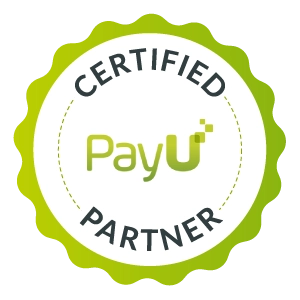Unlocking the Power of Networking
In today’s fast-paced professional world, the saying “It’s not what you know, but who you know” holds more truth than ever. Networking, the art of building and nurturing professional relationships, has become a cornerstone of career success. Whether you’re just starting out in your career, looking to advance to a higher position, or seeking new opportunities, effective networking can unlock doors that knowledge and skills alone may not.
This blog delves into the transformative power of networking, offering insights and strategies to help you expand your professional network, enhance your career prospects, and navigate the ever-changing job market. By understanding and leveraging the principles of networking, you can not only grow your professional circle but also position yourself for long-term success. Whether you’re an introvert finding it challenging to connect or an experienced networker looking to refine your skills, this comprehensive guide is designed to help you harness the full potential of networking in your professional journey.
What is Professional Networking?
Defining Professional Networking
Professional networking is the process of building and maintaining relationships with other professionals in your industry or related fields. This practice is crucial for career development, as it helps individuals share knowledge, find opportunities, and gain insights into industry trends. Networking isn’t just about connecting with others for immediate benefits; it’s about fostering long-term relationships that can support mutual growth and success.

Forms of Professional Networking
1. Online Networking: Online networking has become increasingly prevalent with the rise of digital platforms. Websites like LinkedIn, Twitter, and professional forums offer individuals the opportunity to connect with a broader audience than ever before. These platforms allow professionals to showcase their skills, share content, engage in discussions, and connect with industry leaders. Online networking is particularly valuable for individuals who may not have access to in-person events or who are looking to build a global network.
2. Offline Networking: Offline networking involves face-to-face interactions, which can take place at industry conferences, seminars, workshops, and social events. These settings provide opportunities to make direct connections, engage in meaningful conversations, and establish rapport. Traditional networking events allow for deeper connections, as non-verbal cues and personal interactions play a significant role in relationship building.
The Evolution of Networking in the Digital Age
The digital age has transformed how we approach networking. Previously, networking was often limited to local communities or specific professional groups. Today, the internet has democratized access to networking opportunities, enabling individuals to connect across geographic and cultural boundaries. Digital tools have made it easier to find and engage with like-minded professionals, join niche communities, and participate in virtual events.
Moreover, the integration of social media into professional life has blurred the lines between personal and professional interactions. This shift has necessitated a more strategic approach to online presence, where individuals must carefully curate their profiles and interactions to reflect their professional brand.
As the digital landscape continues to evolve, so do the methods and tools for networking. Staying updated with these changes and leveraging the right platforms can significantly enhance one’s networking efforts and, by extension, career growth.
Why Networking is Crucial for Career Growth
Expanding Your Opportunities
Networking is a powerful tool for opening doors to new job opportunities and collaborations. By connecting with professionals across various fields, you can gain access to insider information about job openings that may not be publicly advertised. Many employers prioritize referrals from trusted colleagues, making a strong professional network a valuable asset in your job search.
In addition to job opportunities, networking can lead to collaborations on projects, joint ventures, or even business partnerships. These collaborations often arise from mutual interests or complementary skills, allowing both parties to achieve greater success together than they could alone.
Building a Support System
A well-developed professional network serves as a supportive community, offering encouragement, advice, and guidance. Networking allows you to connect with peers who share similar challenges and goals, creating a sense of camaraderie and mutual support. This network can be invaluable during times of transition, such as changing careers or navigating layoffs.
Mentors, who are often found through networking, play a crucial role in career development. They provide insights from their own experiences, offer constructive feedback, and help you navigate complex professional landscapes. Having mentors and a network of supportive peers can boost your confidence and provide a safety net as you pursue your career goals.
Enhancing Your Knowledge and Skills
Networking is not just about making connections; it’s also a valuable avenue for learning and professional growth. Engaging with industry leaders and attending networking events can expose you to the latest trends, technologies, and best practices in your field. Conversations with experienced professionals can provide new perspectives and innovative ideas that you can apply in your work.
Additionally, networking often involves sharing resources, such as articles, books, and courses, which can help you stay informed and continuously develop your skills. Being part of a network means you’re more likely to hear about workshops, webinars, and other educational opportunities that can enhance your expertise and keep you competitive in your industry.
In summary, networking is a multifaceted tool that not only broadens your professional opportunities but also builds a robust support system and enhances your knowledge and skills. Whether you’re looking to advance in your current role or explore new career paths, a strong network can be a critical factor in achieving your goals.
Types of Networking: Online vs. Offline
Online Networking
Benefits of Online Networking Platforms: Online networking platforms such as LinkedIn, Twitter, and professional forums provide a convenient and efficient way to connect with a vast audience. These platforms offer numerous benefits:
- Global Reach: Online platforms break geographical barriers, allowing you to connect with professionals worldwide.
- 24/7 Accessibility: Networking can happen anytime, making it easier to fit into busy schedules.
- Diverse Connections: You can engage with professionals from various industries and backgrounds, broadening your perspective.
- Resource Sharing: These platforms often host valuable content like articles, webinars, and discussion groups, facilitating continuous learning.

Tips for Building a Strong Online Presence:
- Optimize Your Profile: Ensure your profiles on platforms like LinkedIn are complete and professional. Use a clear, high-quality profile picture and write a compelling summary that highlights your skills, experiences, and career goals.
- Be Active and Engaged: Regularly share relevant content, comment on posts, and participate in discussions. This demonstrates your knowledge and keeps you visible in your network.
- Connect Strategically: Send personalized connection requests, explaining why you want to connect. This approach is more effective than generic messages and helps build meaningful relationships.
- Join Groups and Forums: Participate in groups related to your industry or interests. These communities are great for networking, learning, and sharing insights.
- Maintain Professionalism: Always communicate respectfully and professionally. Your online interactions contribute to your personal brand and reputation.
Offline Networking
Importance of Attending Conferences, Workshops, and Industry Events: Offline networking provides unique benefits that digital interactions often cannot replicate. Attending conferences, workshops, and industry events is crucial for several reasons:
- Building Deeper Connections: Face-to-face interactions allow for more personal and meaningful connections, which can lead to stronger professional relationships.
- Expanding Your Network: These events attract like-minded professionals, offering a rich environment for meeting new contacts.
- Staying Updated: Live events often feature talks and presentations by industry leaders, providing insights into the latest trends and developments.
How to Make the Most Out of Face-to-Face Networking Opportunities:
- Prepare in Advance: Research the event, speakers, and attendees. Identify key individuals you want to connect with and prepare questions or talking points.
- Be Approachable and Confident: Approach people with a smile, introduce yourself confidently and be ready to engage in meaningful conversations.
- Exchange Business Cards: Have business cards ready for exchange, and follow up with new contacts after the event to reinforce the connection.
- Attend Social Events: Many conferences and workshops include social activities. Participating in these can provide informal networking opportunities.
- Participate Actively: Engage in discussions, ask questions during Q&A sessions, and attend breakout sessions or workshops that interest you.
By effectively leveraging both online and offline networking, you can create a well-rounded and diverse professional network that supports your career growth and development.

Strategies for Effective Networking
Setting Clear Goals
To maximize the benefits of networking, it’s crucial to define your objectives and focus areas. Clear goals help you approach networking with intention and make it easier to measure your progress. Here’s how to set effective networking goals:
- Identify Your Purpose: Determine why you want to network. Are you seeking job opportunities, looking for mentors, or aiming to expand your knowledge in a specific field? Understanding your primary motivations will guide your approach.
- Target Specific Individuals or Groups: Based on your goals, identify key individuals or groups that can help you achieve them. This might include industry leaders, peers in your field, or professionals with complementary skills.
- Set Measurable Outcomes: Define what success looks like for you. This could be attending a certain number of events, connecting with a specific number of professionals, or obtaining a job interview or collaboration opportunity.
- Prioritize Quality Over Quantity: Focus on building a few strong, meaningful connections rather than collecting numerous contacts. Quality interactions are more likely to lead to valuable opportunities.
Building Genuine Connections
Authenticity is key to building meaningful and lasting professional relationships. People are more likely to engage with and support you if they perceive you as genuine and trustworthy. Here are tips for fostering genuine connections:
- Be Yourself: Approach networking with an authentic mindset. Share your true interests, experiences, and aspirations rather than trying to project an idealized image.
- Listen Actively: Show genuine interest in others by listening more than you speak. Ask open-ended questions and show empathy, which helps build rapport and trust.
- Offer Value: Networking is a two-way street. Be willing to share your knowledge, resources, or assistance without expecting immediate returns. This generosity fosters goodwill and strengthens relationships.
- Be Respectful and Professional: Respect others’ time and boundaries. Approach networking with a mindset of building mutually beneficial relationships, not just advancing your own interests.
Following Up
Maintaining and nurturing professional relationships is essential for long-term networking success. Following up is a critical step in this process:
- Send a Thank-You Message: After meeting someone, send a brief thank-you message. Mention something specific from your conversation to personalize the note and reinforce your connection.
- Keep in Touch Regularly: Maintain contact by periodically sharing relevant content, checking in, or inviting them to events. This helps keep the relationship active and demonstrates your continued interest.
- Offer Support and Acknowledge Milestones: Be supportive by celebrating their achievements and offering help when appropriate. This shows that you value the relationship beyond your immediate needs.
- Use a System to Track Contacts: Consider using a CRM tool or a simple spreadsheet to track your interactions and follow-up activities. This helps ensure that no important connection falls through the cracks.
By setting clear goals, building genuine connections, and consistently following up, you can create a robust and supportive professional network that contributes to your career success.
Overcoming Common Networking Challenges
Introversion and Networking
For introverts, the prospect of networking can often seem daunting due to the emphasis on social interactions. However, introverts can leverage their strengths to network effectively without feeling overwhelmed. Here are some tips:
- Prepare Ahead: Preparation can help reduce anxiety. Before attending an event, research the attendees, plan conversation starters, and set small, manageable goals, such as meeting a specific number of people.
- Leverage One-on-One Interactions: Introverts often excel in deep, meaningful conversations rather than large group interactions. Focus on one-on-one meetings, which can be more comfortable and productive.
- Listen and Ask Thoughtful Questions: Use your natural listening skills to your advantage. Asking thoughtful questions not only shows genuine interest but also takes the pressure off speaking about yourself extensively.
- Choose Comfortable Settings: Start networking in environments where you feel comfortable, such as smaller events, workshops, or online communities. Gradually expand to larger gatherings as your confidence grows.
- Take Breaks and Manage Energy Levels: Networking can be draining for introverts. It’s okay to take breaks, step outside, or find a quiet space to recharge. Managing your energy levels is crucial for staying engaged and positive.
Networking in a Remote Work Environment
The shift towards remote work has significantly changed the dynamics of networking. While virtual networking presents challenges, it also offers unique opportunities for connecting with professionals worldwide. Here’s how to adapt to virtual networking:
- Utilize Online Networking Platforms: Platforms like LinkedIn, virtual conferences, and industry-specific forums are excellent for maintaining and expanding your network remotely. Actively participate in discussions and engage with content.
- Attend Virtual Events and Webinars: Many organizations now host virtual networking events and webinars. These events can be less intimidating than in-person gatherings and offer structured networking opportunities through breakout sessions and Q&A periods.
- Schedule Virtual Coffee Chats: Set up informal virtual meetings with new connections or existing contacts. These relaxed settings are great for getting to know people personally and professionally.
- Maintain a Professional Online Presence: Ensure your online profiles are up-to-date and reflect your professional persona. Engage in discussions, share insights, and demonstrate your expertise to build visibility in your field.
- Be Proactive in Follow-Ups: After virtual events or online interactions, follow up with personalized messages. Express your appreciation for the conversation and suggest ways to stay in touch or collaborate.
- Leverage Remote Collaboration Tools: Tools like Zoom, Slack, and Microsoft Teams can facilitate ongoing communication and collaboration with your network. They allow for more spontaneous interactions, mimicking the casual conversations often missed in a remote setup.
Networking, whether for introverts or in a remote work environment, requires intentionality and adaptability. By tailoring your approach to suit your personal style and the current landscape, you can effectively build and maintain a strong professional network.
Real-Life Networking Success Stories
Case Study 1: From Casual Conversation to Career Leap
Background: Jane, a marketing professional, attended a local industry conference primarily to learn from the sessions. As an introvert, she wasn’t keen on networking but decided to engage in a few conversations during breaks.
Networking Experience: During a coffee break, Jane struck up a conversation with another attendee, Sarah, who worked in a related field. They discussed the latest trends in digital marketing and exchanged business cards. Jane followed up with a LinkedIn connection request and a message thanking Sarah for the conversation.
Outcome: A few months later, Sarah informed Jane about a job opening at her company that aligned perfectly with Jane’s skills and career aspirations. Sarah’s recommendation and the connection they had established helped Jane secure an interview and, ultimately, the job, which was a significant career advancement.
Case Study 2: Building a Global Network Online
Background: David, a software developer, was interested in expanding his career opportunities internationally. Living in a region with limited local networking events, he turned to online platforms like GitHub, LinkedIn, and tech forums.
Networking Experience: David actively participated in online communities, contributing to open-source projects and sharing insights on LinkedIn. He engaged with other developers, offering help and sharing knowledge. This proactive engagement led to connections with professionals in various countries.
Outcome: One of David’s online connections, a senior developer at a multinational tech company, noticed his consistent contributions and invited him to apply for a remote position. David’s established online reputation and the connection’s endorsement helped him land a job that not only advanced his career but also provided global work experience.
Case Study 3: Leveraging Networking for Entrepreneurship
Background: Emily, an aspiring entrepreneur, wanted to launch her own digital marketing agency. Lacking the necessary capital and client base, she focused on building a strong network within the industry.
Networking Experience: Emily attended various industry events, workshops, and webinars, where she met potential mentors, investors, and clients. She joined professional groups on LinkedIn and participated in discussions, offering her expertise and seeking advice. One key connection was a mentor who provided invaluable guidance and introduced her to potential clients.
Outcome: Through her mentor and network, Emily secured her first few clients, which provided the initial revenue needed to sustain her business. Additionally, the connections she made led to a partnership with another agency, allowing her to expand her service offerings. Her network continued to be a source of referrals and opportunities, significantly contributing to her business’s growth.
These case studies illustrate the diverse ways in which networking can catalyze career advancement, whether through job opportunities, global connections, or entrepreneurial ventures. They highlight the importance of being proactive, authentic, and engaged in both online and offline networking efforts.
Tools and Resources for Networking
1. LinkedIn: LinkedIn is the premier professional networking platform, offering a space for individuals to connect with industry professionals, showcase their skills, and stay updated with industry news. It features networking opportunities through connection requests, group discussions, and job postings.
2. Twitter: Twitter allows for real-time engagement and discussions on industry trends. By following industry leaders and participating in relevant hashtags and Twitter chats, professionals can build connections and stay informed.
3. GitHub: For tech professionals and developers, GitHub is a valuable platform for collaborating on open-source projects, sharing code, and engaging with other developers. Contributing to projects and participating in discussions can help build a network within the tech community.
4. Reddit: Subreddits related to specific industries or professions provide opportunities for networking and knowledge sharing. Engaging in discussions and contributing valuable insights can help build connections and establish credibility.
5. Meetup: Meetup is useful for finding and attending local or virtual networking events, meetups, and professional gatherings based on your interests and industry. It’s a great tool for connecting with like-minded professionals in your area.
6. Slack Communities: Many industries have Slack communities where professionals discuss trends, share advice, and network. Joining these communities can provide insights and opportunities for collaboration.
Networking Groups and Associations
1 American Marketing Association (AMA): The AMA offers networking opportunities for marketing professionals through local chapters, events, and online communities. It provides resources for professional development and industry insights.
2 Professional Association for Design (AIGA): AIGA is a key association for designers, providing networking events, conferences, and resources to connect with other design professionals and stay current with industry trends.
3 Society for Human Resource Management (SHRM): SHRM is a leading association for HR professionals. It offers networking events, webinars, and resources to connect with other HR professionals and stay updated on HR practices and regulations.
4 Project Management Institute (PMI): PMI is a global organization for project managers, providing networking opportunities through local chapters, events, and certifications. It supports professional development and offers resources for project management best practices.
5 TechCrunch Disrupt: TechCrunch Disrupt is a prominent event for tech startups and investors. Attendees have the opportunity to network with industry leaders, potential investors, and other entrepreneurs.
6 National Association of Realtors (NAR): For real estate professionals, NAR offers networking opportunities through conferences, local associations, and online communities. It provides resources and support for career development in real estate.
7 International Association for Privacy Professionals (IAPP): IAPP is a global association for privacy professionals, offering networking opportunities, certifications, and resources related to privacy and data protection.
By leveraging these online platforms and joining professional groups and associations, individuals can effectively expand their professional networks, access valuable resources, and stay engaged with their industry.
Transforming Your Professional Landscape Through Networking
Networking is more than just a buzzword; it’s a fundamental aspect of career development and growth. The benefits of effective networking are profound and far-reaching:
- Expanding Opportunities: Networking opens doors to new job prospects, collaborations, and business opportunities that might not be available through traditional channels. It connects you with key decision-makers and influencers in your field.
- Building a Support System: A strong professional network provides a valuable support system of peers and mentors. These relationships offer guidance, encouragement, and a safety net during career transitions.
- Enhancing Knowledge and Skills: Engaging with industry leaders and peers through networking helps you stay informed about the latest trends, technologies, and best practices, ultimately enhancing your expertise and career prospects.
In the digital age, both online and offline networking are crucial. Online platforms like LinkedIn and Twitter offer global reach and the ability to connect with a diverse audience, while offline events provide deeper, more personal interactions. Regardless of your networking style or preferences, the key is to be proactive and strategic.
Take Action
To harness the power of networking and elevate your professional landscape, consider these actionable steps:
- Set Clear Networking Goals: Define what you want to achieve through networking—whether it’s finding a mentor, exploring job opportunities, or expanding your industry knowledge.
- Engage Consistently: Be active on networking platforms, attend industry events, and participate in relevant discussions. Consistent engagement helps build and maintain valuable connections.
- Focus on Genuine Connections: Prioritize building authentic relationships rather than simply collecting contacts. Listen actively, offer value, and be approachable.
- Follow-Up: After meeting new contacts, follow up with personalized messages or invitations to further conversations. Regularly nurture your professional relationships to keep them active.
- Leverage Available Resources: Utilize online platforms, join professional groups and associations, and participate in industry-specific events to broaden your network and stay informed.
By taking these steps, you can effectively enhance your networking efforts, opening doors to new opportunities and building a robust professional network that supports your career growth. Embrace networking as a continuous process and an integral part of your professional journey.













